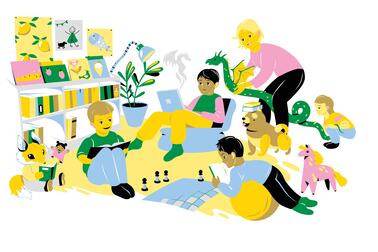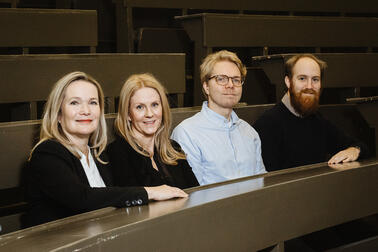
The Anti-Bullying Programme (ABP13) has already been in use for years in the City of Helsinki's daycare centres and schools, and it has now been adapted to better meet the needs of daycare centres.
“A safe and caring community where everyone is included in play is essential for a child's wellbeing and learning. By investing in these fundamental emotional and interaction skills, we are building a foundation that will last a lifetime," says Head of Early Childhood Education Miia Kemppi.
The anti-bullying programme for early childhood education and pre-primary education was built together with children and staff and piloted in 19 daycare centres. The ABP13 was updated to make it more suitable for early childhood education, as daycare centres wanted their own programme that suits their environment better. A report by the Finnish Education Evaluation Centre (FINEEC) on tackling bullying in early childhood education served as background material for the update.
Programme available online
Helsinki's anti-bullying programme for early childhood education and pre-primary education is available in Finnish, Swedish and English on the City's website.
For Helsinki residents:
- Anti-bullying measures in early childhood education | City of Helsinki
- Anti-bullying measures in pre-primary education | City of Helsinki
For professionals:
- Anti-bullying programme, early childhood education and pre-primary education (PDF in Finnish)
- Anti-bullying programme, early childhood education and pre-primary education (PDF in Swedish)
Eduction Division's project specialists, pedagogical specialists and pupil welfare staff have been involved in the preparation of the programme.
"Makes someone else feel bad"
In the most recent joint customer experience survey for early childhood education in the Helsinki Metropolitan Area, parents and guardians asked their children what they disliked at daycare. Fourteen per cent of the children said that they disliked bullying at daycare. The children also mentioned disputes among children.
When asked what bullying is, children aged 6–7 in a daycare centre in Helsinki had the following to say:
"Bullying is when you hit someone. And it doesn't feel nice, and then you have to tell an adult straight away.
"Saying something nasty or doing something to another child."
"Hurting someone. "
"Not being included in playing. "
"Something that makes someone else feel bad."
“Children put it best themselves: bullying is making someone else feel bad. It is up to us as adults to make sure that no child has to experience this in our daycare centres. That is why we are now systematically introducing an anti-bullying programme that will give our staff a consistent way to support the development of friendship skills and to intervene in bullying immediately," Kemppi says.
Bullying highlighted in Child Barometer
Bullying emerged as a frequent experience in the recent Child Barometer study by the Ombudsman for Children consisting of more than 400 telephone interviews with pre-primary education children nationwide; one per cent of children said they were continuously bullied in pre-primary education, and 56% said they were sometimes bullied. Seventeen per cent of the respondents also said that they do not always have a friend at pre-primary school.
In spring 2025, as part of a curriculum update, Helsinki heard children in 15 pre-primary education groups on their views on learning, play, the significance of adults, atmosphere, friends, community and the transition to school. When asked what are positive things in pre-primary school, the 5 and 6-year-olds highlighted the meaning of friends in their responses. At the same time, children in almost all groups mentioned arguments and being excluded from play as unpleasant things.
5 and 6-year-olds described a nice friend as someone who:
"includes everyone in play."
"you can get by meeting and telling them your name."
"plays nice games with others."
Intervening in and preventing bullying is one of the key mandatory tasks of early childhood education. According to the Act on Early Childhood Education and Care, children must be protected from violence, bullying and other forms of harassment.
In the autumn, Helsinki's early childhood education staff will receive an introduction to the updated anti-bullying programme and support material for parent-teacher conferences.


